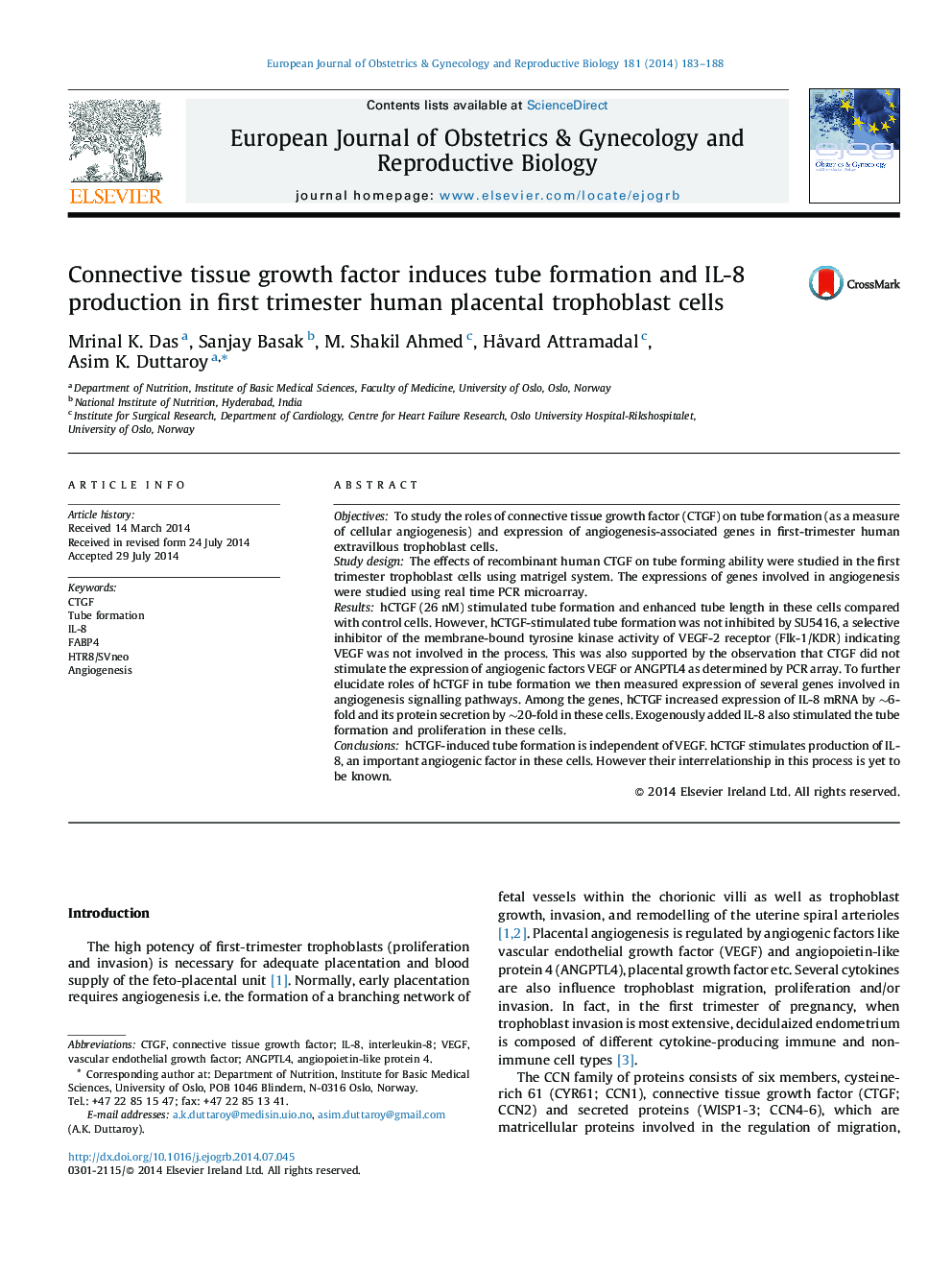| Article ID | Journal | Published Year | Pages | File Type |
|---|---|---|---|---|
| 6173217 | European Journal of Obstetrics & Gynecology and Reproductive Biology | 2014 | 6 Pages |
ObjectivesTo study the roles of connective tissue growth factor (CTGF) on tube formation (as a measure of cellular angiogenesis) and expression of angiogenesis-associated genes in first-trimester human extravillous trophoblast cells.Study designThe effects of recombinant human CTGF on tube forming ability were studied in the first trimester trophoblast cells using matrigel system. The expressions of genes involved in angiogenesis were studied using real time PCR microarray.ResultshCTGF (26Â nM) stimulated tube formation and enhanced tube length in these cells compared with control cells. However, hCTGF-stimulated tube formation was not inhibited by SU5416, a selective inhibitor of the membrane-bound tyrosine kinase activity of VEGF-2 receptor (Flk-1/KDR) indicating VEGF was not involved in the process. This was also supported by the observation that CTGF did not stimulate the expression of angiogenic factors VEGF or ANGPTL4 as determined by PCR array. To further elucidate roles of hCTGF in tube formation we then measured expression of several genes involved in angiogenesis signalling pathways. Among the genes, hCTGF increased expression of IL-8 mRNA by â¼6-fold and its protein secretion by â¼20-fold in these cells. Exogenously added IL-8 also stimulated the tube formation and proliferation in these cells.ConclusionshCTGF-induced tube formation is independent of VEGF. hCTGF stimulates production of IL-8, an important angiogenic factor in these cells. However their interrelationship in this process is yet to be known.
